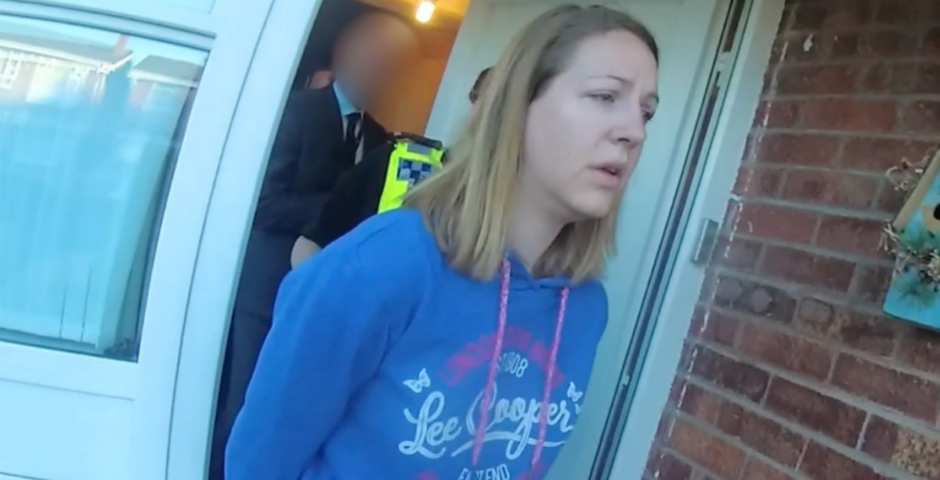
Voting from afar: An American student’s experience with the U.S. election in Scotland
I miss wearing an ‘I Voted’ sticker
As an American student studying in the UK, being thousands of miles away from home comes with its share of challenges and adventures. This year, however, there’s a new kind of challenge that many of us abroad are navigating: Voting in the U.S. presidential election from overseas.
This isn’t just any election for me either—it’s my first time voting, adding to the mix of excitement and logistical puzzles. So, here’s my firsthand experience with what it’s like to cast my ballot from afar, including the steps involved and the unexpected costs of making my vote count from another country.
Registering to vote abroad: The first step
For U.S. citizens living abroad, the voting process starts with the Federal Voting Assistance Program (FVAP), which provides a comprehensive guide on how to register and request an absentee ballot. I used FVAP’s Federal Post Card Application (FPCA) to request my ballot, following their guidelines for international absentee voters. It’s essential to carefully read each state’s unique requirements, since every state has different rules and deadlines for absentee voting.
After confirming my voter registration status (some states require this even if you were previously registered), I used FVAP’s Federal Post Card Application (FPCA) to request my absentee ballot. You simply select your home state, complete the form online, and submit it electronically or by mail depending on your state’s requirements.
Most Read
The process was fairly straightforward—though it requires careful attention to detail, as each state has specific rules about forms and deadlines. For anyone voting abroad, I recommend getting this done as early as possible to ensure your ballot arrives in times.
Receiving the ballot: Digital vs. physical delivery
Once my FPCA was submitted, my ballot arrived by email a few weeks later, with an attachment ready to print. The good news is that nearly all states—including Texas— provide digital ballots to overseas voters, a huge advantage since physical mail would likely take weeks to arrive in the UK.
For me, this meant my ballot was ready to download and print within minutes of its arrival in my inbox. While some people still request their ballots by mail, relying on the postal system from the U.S. to the UK (and vice versa) can be risky, especially with potential delays. The option to receive my ballot via email not only saved time but also avoided the concern of waiting on international post, especially for something as time-sensitive as a ballot.
Printing, completing, and returning the ballot: The cost of voting from afar
Once I had my ballot, it was time to print, complete, and send it back to the States. This part requires a bit of planning, especially in terms of how you’ll return your ballot.
Many states allow ballots to be returned electronically, either by email or through an online portal. If your state permits this option, it’s by far the most efficient way to ensure your vote is received on time. However, if you’re from a state that requires a physical return, you’ll need to send your ballot by postal mail or courier.
Since Texas requires absentee ballots to be physically mailed back, I had to make sure it would get there on time. The most reliable option was to use a courier service. But when I looked into costs, services like FedEx and DHL would have charged around £150, almost three times as much as what I ultimately paid.
Instead, I opted to go with a Royal Mail international service, using a courier expedite option, which set me back around £50 (approximately $63 USD). Royal Mail’s courier expedited option offered faster shipping than standard international mail, and it felt like a solid middle ground: it was pricey, but it guaranteed quicker delivery to the U.S. and avoided potential issues with customs. I had heard from other American students in the UK that standard international packages can sometimes get caught up in customs. After one friend’s ballot got held up this way, I decided to invest a bit more to be safe.
Voting from abroad: My first election at a distance
Voting in my first U.S. presidential election as an international student has been both exciting and strange—a mix of responsibility, homesickness, and newfound perspective. While my friends and classmates in the UK gear up for their own parliamentary elections and local issues, I find myself casting a vote in an election thousands of miles away, with far-reaching implications for global policy. It’s surreal to think that, as I attend classes and go about my daily life here, I’m also participating in a civic responsibility that connects me back to my roots in the U.S.
At the same time, there’s a profound sense of distance from the usual election buzz back home. I miss the familiar rhythm of campaign ads, rallies, and the community conversations that make voting feel like a shared experience in the States. In the UK, where friends may not follow U.S. politics as closely, the election can feel a bit removed. But this distance has also brought a new perspective, allowing me to see more clearly how my home country’s politics impact the world beyond its borders.
Despite the extra steps it’s taken to vote from abroad, the experience has been empowering. No matter where I am in the world, my voice still matters, and this election has reminded me of the importance of participating—even from across the pond.
Still, I miss the small, symbolic moments that come with voting in person, like wearing an “I Voted” sticker for the first time and feeling part of the shared excitement back home.






















